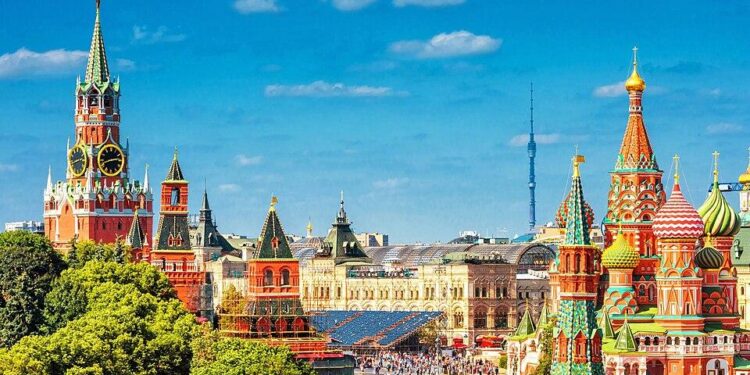Tensions between Russia and Azerbaijan have escalated sharply in recent weeks, raising concerns about regional stability in the South Caucasus. Analysts and officials are closely monitoring the unfolding situation, as both nations appear increasingly at odds amid a complex web of geopolitical interests and unresolved conflicts. This article examines the key factors driving the current strain in relations and why these developments are occurring at this particular moment.
Background of the Russia Azerbaijan Conflict and Recent Escalations
The roots of the Russia-Azerbaijan conflict trace back to the complex geopolitical landscape of the South Caucasus, where historical grievances, territorial disputes, and shifting alliances create a fragile balance of power. Since the collapse of the Soviet Union, Azerbaijan has sought to assert its sovereignty amid competing interests from Russia and neighboring Armenia, especially over the contested Nagorno-Karabakh region. Over the years, Russia has maintained a strategic influence in the area, often positioning itself as a peacekeeper yet simultaneously preserving leverage over Azerbaijan’s political and military decisions. Recent escalations reveal the underlying tensions exacerbated by energy politics, military build-up, and diplomatic strains between the two nations.
Several critical factors explain why tensions have reportedly surged at this particular moment:
- Energy routes and pipelines: Azerbaijan’s growing role as an energy supplier to Europe challenges Russia’s traditional dominance in the energy sector.
- Military posturing: Increased troop deployments and arms acquisitions signal a heightened state of alert on both sides.
- Regional alliances: Azerbaijani pivot towards Turkey and Western partners contrasts with Russia’s heavier engagement with Armenia.
- Diplomatic friction: Recent high-level talks have stalled, with mutual accusations over border violations and interference.
| Aspect | Russia | Azerbaijan |
|---|---|---|
| Military Presence | Strong in Armenia, border patrols active | Enhanced border security, new acquisitions |
| Energy Influence | Gas exports to Europe dominant | Growing pipeline network to Europe |
| International Partners | Closer to Armenia and Iran | Strategic ties with Turkey and EU nations |
Geopolitical Implications for the South Caucasus Region
The escalating tensions between Russia and Azerbaijan have cast a new shadow over the highly volatile South Caucasus region, a strategic crossroads that connects Eastern Europe and Western Asia. At the heart of the confrontation lie competing geopolitical interests influenced by recent shifts in regional alliances, energy routes, and military posturing. Russia’s insistence on maintaining its dominant influence across its near abroad is increasingly challenged by Azerbaijan’s assertive foreign policy, particularly as Baku seeks closer ties with Western partners and Turkey. This power play complicates the already fragile security landscape, raising concerns about a broader destabilization that would impact not only local actors but global stakeholders eyeing control over critical energy corridors and trade routes.
Key factors driving these dynamics include:
- Energy geopolitics: Azerbaijan’s role as a major oil and gas supplier gives it leverage amid rising global energy demands, while Russia views this as a challenge to its regional dominance.
- Military deployments and alliances: Increased military exercises by Russia near Azerbaijani borders and Baku’s growing cooperation with NATO members heighten mutual suspicions.
- Ethnic and territorial disputes: Nagorno-Karabakh remains a tinderbox, with fluctuating ceasefires fueling mistrust between Armenia, supported by Russia, and Azerbaijan.
| Factor | Impact | Stakeholders |
|---|---|---|
| Energy Routes | Strengthens Azerbaijan’s bargaining power | Azerbaijan, Russia, EU |
| Military Presence | Pulse of regional security threats | |
| Military Presence | Pulse of regional security threats | Russia, Azerbaijan, NATO |
| Ethnic & Territorial Disputes | Source of ongoing conflict and instability | Armenia, Azerbaijan, Russia |
| Tool | Purpose | Potential Outcome |
|---|---|---|
| Ceasefire Monitoring | Reduce hostilities | Immediate reduction in violence |
| Confidence-Building Measures | Foster trust | Improved communication channels |
| Negotiation Forums | Dialogue promotion | Structured peace talks |
| Humanitarian Corridors | Protect civilians | Alleviated humanitarian impact |
Future Outlook
As tensions continue to escalate between Russia and Azerbaijan, the situation remains fluid and closely watched by international observers. Analysts warn that ongoing geopolitical shifts, regional security concerns, and unresolved historical grievances are contributing to the current strain. With both nations poised at a critical juncture, the coming weeks will be crucial in determining whether diplomatic efforts can prevent further deterioration or if the conflict will deepen, with wider implications for stability in the South Caucasus region. AP News will continue to monitor developments closely and provide updates as the story unfolds.
















